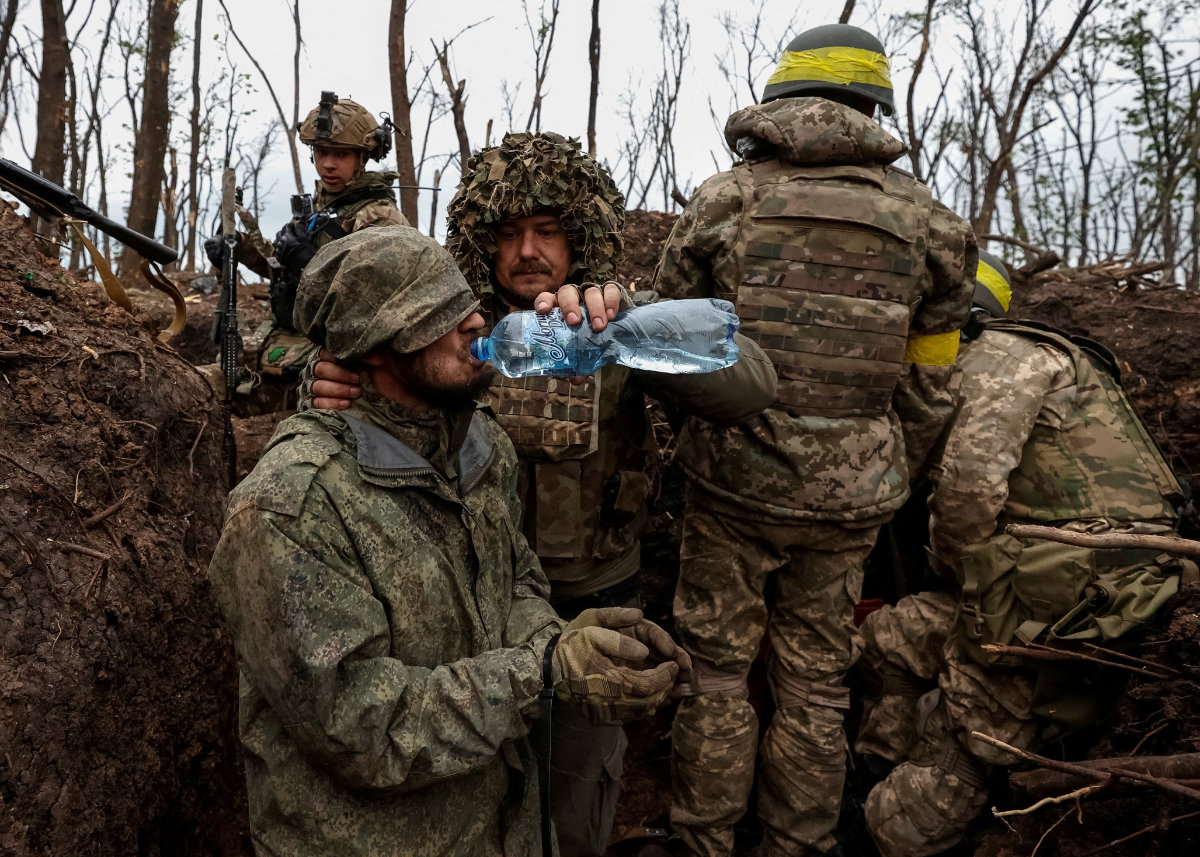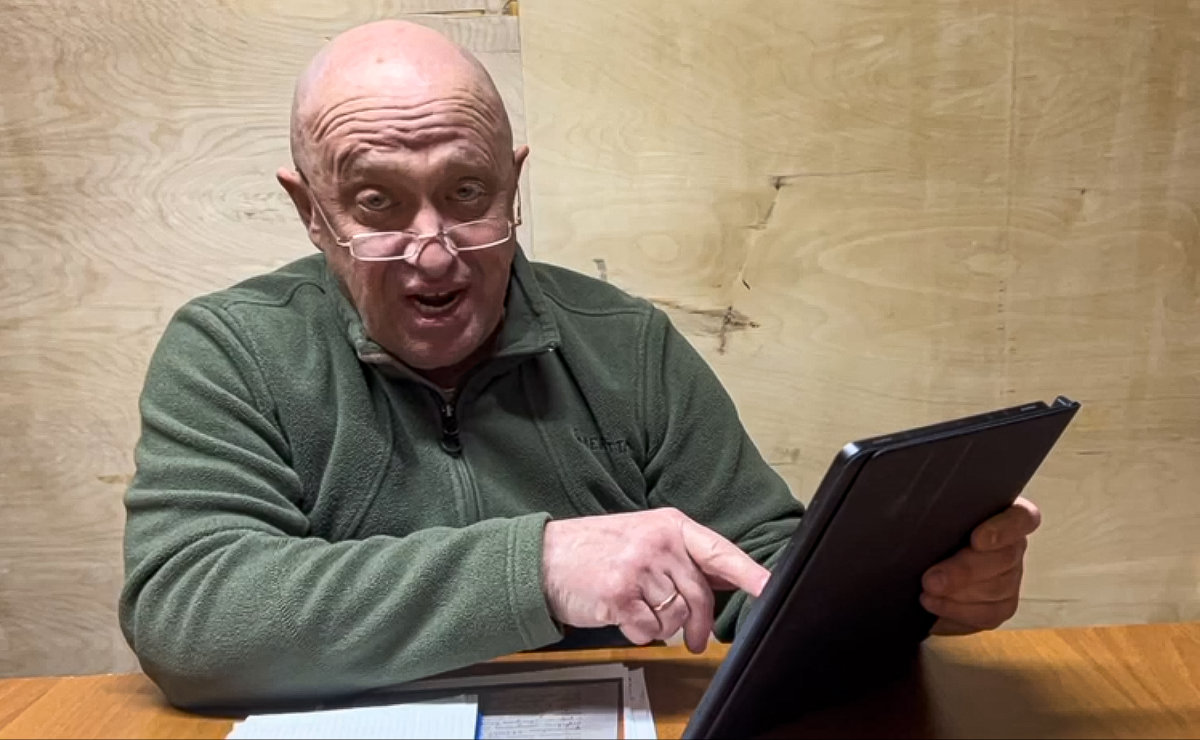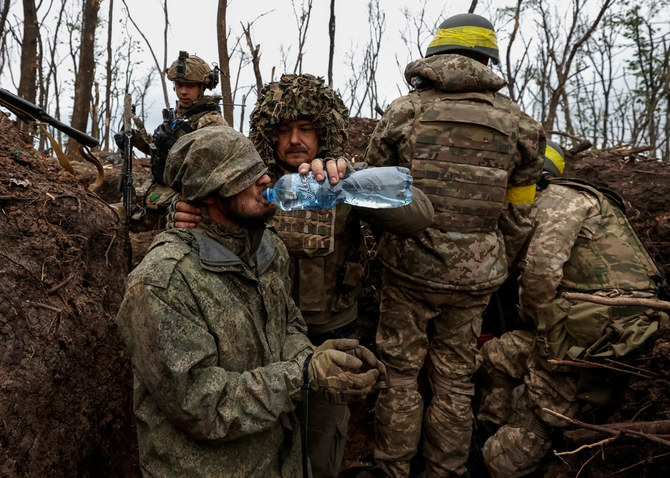Russia’s Defense Ministry said on Sunday that two of its military commanders were killed in eastern Ukraine, as Kyiv’s forces renewed efforts to break through Russian defenses in the embattled city of Bakhmut.
In a daily briefing, the ministry said that Commander Vyacheslav Makarov of the 4th Motorized Rifle Brigade and Deputy Commander Yevgeny Brovko from a separate unit were killed trying to repel Ukrainian attacks.
It said that Makarov had been leading troops from the front line, and that Brovko “died heroically, suffering multiple shrapnel wounds.” The defense ministry rarely announces the deaths of military command in its daily briefings.
It also said Ukrainian forces waged attacks in the north and south of Bakhmut over the past 24 hours, but that they had not broken through Russian defenses. “All attacks by units of Ukraine’s armed forces have been repelled,” it said.
Yevgeny Prigozhin, head of the Wagner mercenary force which has spearheaded much of the Russian advance on Bakhmut, said his forces had advanced up to 130 meters (400 feet) over the past 24 hours.
Prigozhin, in an audio statement on Telegram, said his forces controlled 28 multi-story buildings in western districts of Bakhmut where Ukrainian troops were still operating.
Ukrainian forces, he said, were holding 20 buildings and a total area of 1.69 square km (0.65 square miles).
Reuters was not able to independently verify Russia’s account.
Ukrainian deputy defense minister Hanna Maliar confirmed on Sunday that Ukrainian forces “continue to move forward in the Bakhmut sector in the suburbs.”

A Ukrainian soldier gives water to a captured Russian army serviceman near the front line city of Bakhmut on May 11, 2023. (Radio Free Europe/Radio Liberty/via REUTERS)
“Our units captured more than ten enemy positions in the north and south of Bakhmut and cleared a large area of forest near Ivanivske. Enemy soldiers from different units were captured,” she said on the Telegram messaging app.
Neither Ukraine nor Russian forces have been able to take full control of the city, despite months of grinding warfare that has inflicted heavy losses on both sides.
Moscow acknowledged on Friday that its forces had fallen back north of Bakhmut amid a surge of Ukrainian attacks, but Kyiv has played down suggestions a huge, long-planned counteroffensive has officially begun.
Wagner head's offer to Ukraine
Meanwhile, a Washington Post report on Sunday, citing leaked US intelligence documents, said Wagner chief Prigozhin offered to reveal the position of Russian troops to the Ukranian government.

In this handout image taken from a video released by Prigozhin Press Service on May 12, 2023, Wagner Group chief Yevgeny Prigozhin makes a video statement saying the Russian military in Bakhmut has effectively fled and "our flanks are crumbling." (Prigozhin Press Service via AP)
Wagner’s soldiers have been at the forefront of a bloody Russian offensive to take the city of Bakhmut. In exchange for Ukraine withdrawing its soldiers from the area, Prigozhin in January offered to tell its intelligence service the positions of Russian forces, the Post reported.
The paper said Ukraine rejected the offer.
Prigozhin, a close ally of Russian President Vladimir Putin, has publicly threatened to withdraw his mercenaries from the area around Bakhmut, where they are at the vanguard of the Russian offensive, unless they receive much-needed ammunition.
He said Tuesday in an audio message that he and his men would be regarded as traitors if they abandoned the area.
The Post reported Prigozhin’s offer came through his contacts with Ukraine’s intelligence service.
The White House did not immediately respond to questions about the offer.
The report is based on secret US documents leaked to the group-chat platform Discord.
















